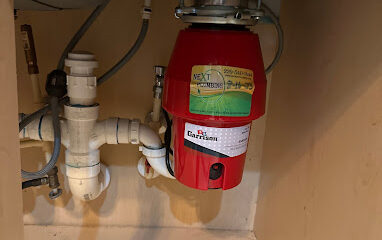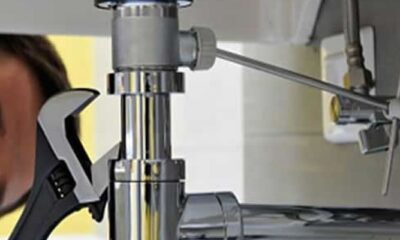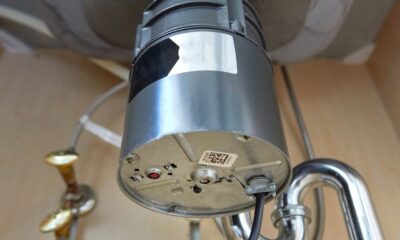Why Is My Water Heater Making Noise? Common Causes and Solutions
We’ve all been there. You’re enjoying a peaceful day when suddenly, your water heater starts making strange noises, disturbing the calm. At Next Plumbing, we know how unsettling these sounds can be, and we’re here to help you figure out what’s going on. From minor fixes to more serious issues, let’s break down the most common water heater noises and what they mean for your home in Cape Coral, FL.
Common Water Heater Noises and What They Mean
Popping, Tapping, or Knocking Sounds
One of the most frequent noises homeowners report is a popping, tapping, or knocking sound. Don’t worry; it’s usually not as bad as it sounds! These noises are caused by sediment buildup at the bottom of your water heater tank. Over time, minerals from hard water settle, and when the water heats up, it has to force its way through this layer, creating those annoying sounds.
The fix? Flushing your water heater can solve this problem and keep your unit running smoothly. We recommend doing this once a year to prevent buildup and avoid more costly repairs down the road. In Cape Coral, with our harder water, consider adding a water filtration system to minimize mineral deposits.
Banging or Knocking from Pipes
Sometimes, that banging noise you hear isn’t coming from your water heater but from the pipes themselves. This is often caused by a condition called water hammer, which occurs when there’s a sudden change in water pressure, making the pipes shake and produce a banging noise. This is especially common when you shut off a faucet quickly.
Fixing the pressure or installing a water hammer arrestor can stop those unsettling bangs.
Buzzing or Humming
If you have an electric water heater and hear a buzzing or humming sound, it’s usually because water is flowing around the heating element, causing vibrations. The good news is that this issue is often an easy fix—just tighten the heating element, and the noise should disappear.
Ticking Sounds
Ticking sounds are often linked to shifts in water pressure. It’s normal for this to happen occasionally, but if the ticking is constant, you might need to adjust the water pressure. Don’t worry, it’s a quick fix and can prevent other issues from popping up.
Screeching or Screaming
Now, this is a sound you don’t want to ignore. A high-pitched screeching or screaming noise is often a sign of restricted water flow. This could be due to a partially closed inlet control valve or debris that’s stuck. If this happens, try opening the valve, but if it’s stuck or the noise continues, it’s time to call in the pros. Screeching sounds can signal a more serious issue that needs immediate attention.
When to Call a Professional
Some noises are normal, but others signal bigger problems that require professional expertise. Here are some situations where you’ll want to give Next Plumbing a call:
- The noises are becoming louder or more frequent.
- You’ve flushed the tank, but the sounds persist.
- Screeching or high-pitched noises won’t stop.
- You notice leaks or other physical damage.
- You’re unsure how to fix the issue and want to avoid making things worse.
We always recommend erring on the side of caution. DIY fixes can sometimes lead to more costly repairs, and having a professional assess the problem can save you time and money in the long run.
Preventive Maintenance for a Quiet Water Heater
If you want to avoid those unsettling noises altogether, keeping up with regular maintenance is key. Here are a few tips to help keep your water heater in great shape:
- Flush the tank yearly to remove sediment buildup.
- Insulate your water heater to reduce noise and improve energy efficiency.
- Check water pressure regularly to avoid ticking and banging.
- Install a water filtration system to reduce mineral deposits and extend the life of your unit.
- Consider a tankless water heater for quieter operation and improved efficiency.
Following these simple tips can help you keep your water heater running quietly and efficiently.
Ready for a Worry-Free Water Heater? Reach Out to Us!
We know how frustrating it can be when your water heater starts making strange noises, but with a little knowledge and some regular maintenance, you can avoid major headaches. From sediment buildup to water pressure issues, most of these sounds can be fixed with simple solutions. Of course, if you’re ever unsure or need a hand, we’re here to help.
If your water heater is giving you trouble or you just want to keep it running smoothly, don’t hesitate to reach out to Next Plumbing for fast, friendly, and reliable service in Cape Coral, FL!



